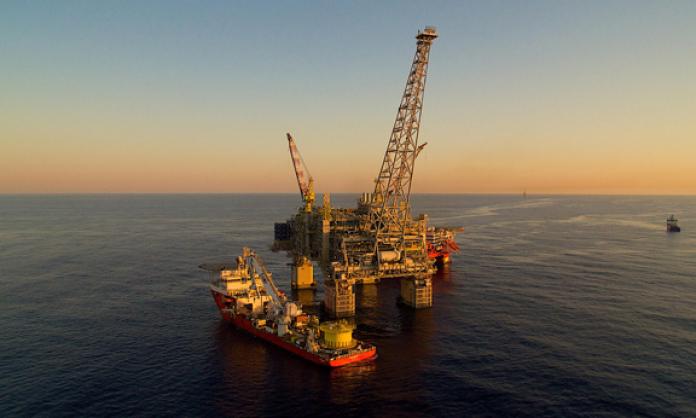It says everything you need to know about the connection between big business, politics and national security. In 2004, then foreign minister Alexander Downer presided over an Australian Secret Intelligence Service (ASIS) operation to install listening devices in the offices of the government of the newly independent, and desperately poor, nation of East Timor.
The operation, which was carried out under the cover of an aid project, aimed to give Australia an advantage in negotiations over a new maritime border between the two countries.
Among the main stakeholders in these negotiations was Australian oil and gas giant Woodside Petroleum. Woodside leads a consortium of companies with rights to exploit gigantic reserves in the Greater Sunrise oil and gas fields, which lie in the Timor Sea around 150km from East Timor and 450km from Darwin.
The fields were first discovered in 1974. They’re estimated to hold around 5.13 trillion cubic feet of gas and 225.9 million barrels of condensate (an ultra-light form of crude oil) – worth a combined $65 billion at today’s prices. East Timor’s GDP is around $4 billion.
In 1975, Indonesia invaded and occupied East Timor after the latter declared independence from previous coloniser Portugal. Australia was among the strongest backers of the occupation. The Australian government was, in 1979, the world’s first to formally recognise East Timor as part of Indonesia.
Greater Sunrise was the prize that successive Australian governments hoped to win in exchange for their unwavering support for the brutal Indonesian occupation, under which at least 102,000 Timorese are estimated to have been killed.
According to international standards, the maritime border between Australia and East Timor should lie midway between them. If this standard was applied, it would mean the Greater Sunrise field would lie on East Timor’s side of the border. This is something that Woodside, and the Australian government, wanted to avoid at all costs.
During Indonesia’s occupation, an agreement was struck on very favourable terms to Australia, with oil and gas revenue from the disputed fields to be shared on a 50-50 basis. When the Indonesians were forced out of East Timor in 1999, however, the agreement had to be renegotiated.
East Timor had been devastated by a 25-year occupation that Australia backed to the hilt. You might think there was merit to the Timorese government’s claim that a new agreement should give them the lion’s share of benefit from the development of the Greater Sunrise field.
The Australian government saw things differently. From the start, it played hardball. At one point in the negotiations, Alexander Downer reportedly shouted across the table “Your claims go almost to Alice Springs. You can demand that forever for all I care. We are very tough … Let me give you a tutorial in politics – not a chance”.
Perhaps part of the reason why Downer could be so “tough” was that, thanks to ASIS, he knew exactly what the Timorese negotiating strategy would be.
The ASIS bugging of the Timorese government’s offices was brought to light by the agent responsible for the operation. Known only as “Witness K”, he grew angry about the operation when Alexander Downer, upon his retirement from politics in 2008, took up a highly paid role as a consultant with – you guessed it – Woodside Petroleum.
To say Woodside has a lot of influence in politics puts it too mildly. During Downer’s time as foreign minister, the Department of Foreign Affairs and Trade was very much at its beck and call. The secretary of the department under Downer, Dr Ashton Calvert, took a place on the Woodside board immediately following his retirement in 2005.
Downer and Calvert aren’t alone. The revolving door between Woodside and the upper echelons of the Australian government is a busy one indeed.
Labor MP Gary Gray, in office from 2007 to 2016 and minister for resources and energy under Julia Gillard, worked for Woodside as director of corporate affairs from 2000 to 2007. Ian Macfarlane, Liberal minister for industry, tourism and resources under John Howard and minister for industry and science under Tony Abbott, has served on Woodside’s board since his retirement from politics in 2015.
As if these kinds of “inside Canberra” connections weren’t enough, Woodside was, in the decade to 2017, among Australia’s biggest political donors – giving more than $1.4 million to the major parties.
The ASIS bugging operation was part of an organised conspiracy, led from the very top of the Australian government, to fleece some of the world’s poorest people for the benefit of some its richest. The government’s hardball approach on Greater Sunrise has prevented East Timor from gaining much-needed revenue to fund the infrastructure, health care, education and other services its people desperately need.
The real sting in the tail of this story is, however, what’s happened to the major players in the 14 years since.
Downer, of course, has done very well – strutting the world stage as a diplomat and consultant and, most recently, trying to secure the federal parliamentary seat of Mayo in South Australia as a family heirloom for his neoliberal culture warrior daughter Georgina. We can, at least, thank the good people of Mayo for ensuring he failed in this endeavour.
Woodside is riding a wave of bumper profits – $1.3 billion in 2017. In light of this you might think they’d be grateful for all the taxpayer dollars that have been poured into defending their interests on the world stage. You’d be wrong.
In a speech earlier this year at the Woodside AGM, outgoing chairman Michael Chaney railed against the “populist” turn in politics that, he argued, was making it hard for the government to cut corporate taxes: “The erosion of public trust in the role of businesses is, I think, quite alarming, particularly if it is fuelled by populist politicians, who seek to impose a greater regulatory burden on corporations”.
What about Witness K and his lawyer Bernard Collaery, the people who brought the ASIS bugging scandal to light and the only people in this story with any vestige of basic human decency?
They’re facing criminal charges for allegedly breaching the Intelligence Services Act, which prohibits any current or former ASIS employees from revealing anything about the agency’s operations. This, according to the government, is an urgent matter of national security, and Witness K and Collaery may end up being jailed for up to 10 years for their “crime”.









